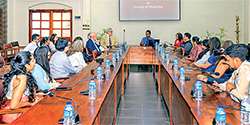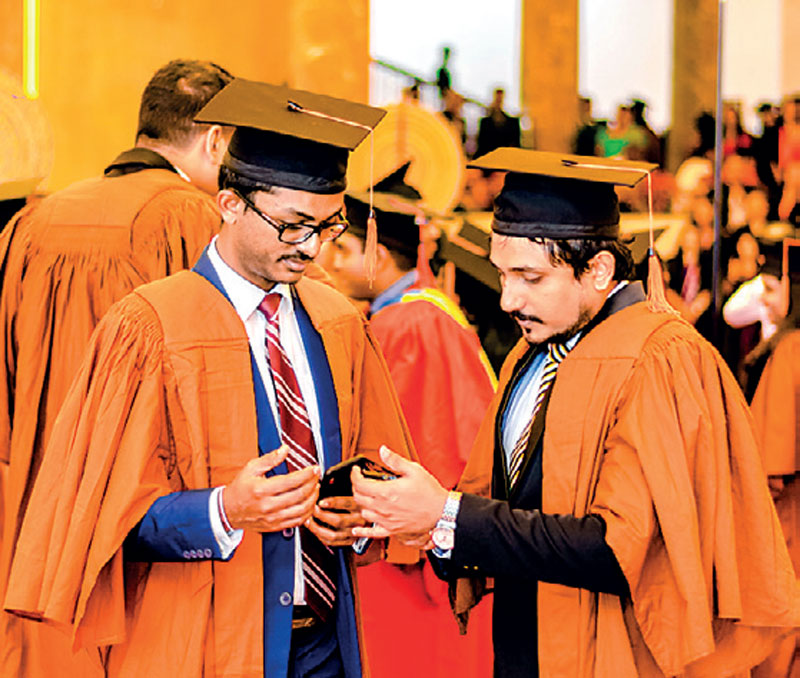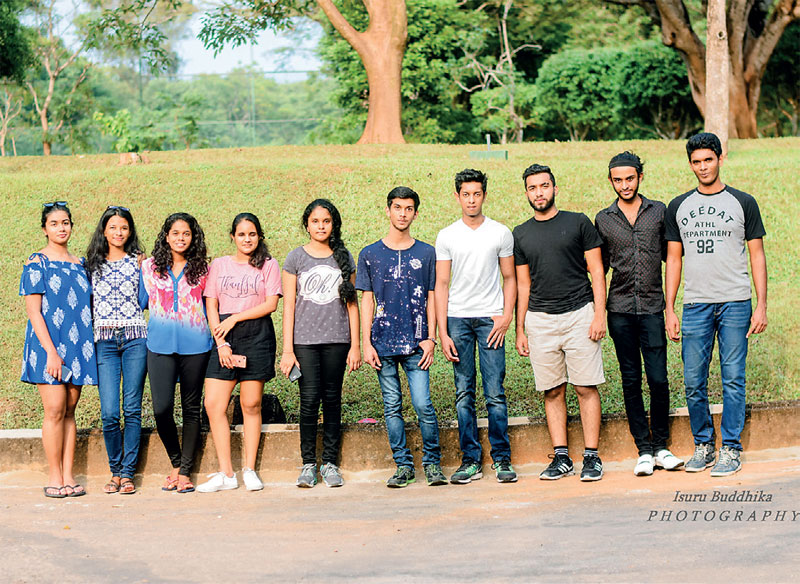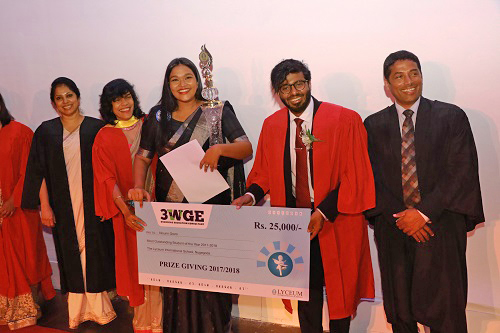“Digitization, digitalization, digital transformation and 4th industrial Revolution”
 Digitization, digitalization and digital transformation are not only words that provides a sense of sophisticated modernization, but also influencing the human civilization in the domains of society, business and security. More often, as in many contexts, people use these terms interchangeably without implying the correct interpretation or transliteration, which leads to create complexity in the minds of larger public and potential users who want to embrace new ideas, concepts to daily application. Digitization triggered with the advancement of electronics to facilitate the demands of the computer/IT (Information Technology) industry.
Digitization, digitalization and digital transformation are not only words that provides a sense of sophisticated modernization, but also influencing the human civilization in the domains of society, business and security. More often, as in many contexts, people use these terms interchangeably without implying the correct interpretation or transliteration, which leads to create complexity in the minds of larger public and potential users who want to embrace new ideas, concepts to daily application. Digitization triggered with the advancement of electronics to facilitate the demands of the computer/IT (Information Technology) industry.
For simple understanding, digitization is converting ‘analog’ to ‘digital’ format. It is creating a digital (bits and bytes) version of analog/physical things such as paper documents, microfilm images, photographs, sounds and more. Therefore, it is simply converting and/or representing something non-digital (other examples include signals, health records, location data, identity cards, etc.) into a digital format which then can be used by a computing system for numerous possible reasons. We also need to understand the term ‘automation’ that is an embedded term in the context of technology.
‘Automation’ is simply converting the ‘manual operations/activities’ to automated processes without or minimum human intervention. Digitization becomes an enabler of the process, which makes it efficient and effective, but does not necessary replaces human tasks totally. Digitalization is the process, which uses the digital technologies to add value to business models and create opportunities for growth. Therefore, digitalization is simply an extension of automation. Digital transformation is the profound transformation of business and organisational activities, processes, competencies and models to leverage the changes and opportunities of a mix of digital technologies and their accelerating impact across society in a strategic and prioritised way, with present and future shifts in mind.
In the process of digital transformation, digitization, digitalization and automation processes take place to make the required platform for digital transformation. Having defined the terms descriptively, now we need to examine the impact of digitization, digitalization and digital transformation on our world and how do we respond to the disruptions created by the digitalization in order to capitalize the advantages and mitigate the negative impact. Let us take the simple example of converting the analog format of telecommunication to a digital format, which enabled completely new set of applications, which have made revolutions in the telecommunication industry.
In Sri Lanka, customers migrated from analog to digital services and that redefine the power plays of the market. Some companies were compelled to close their operations, some adapted and some thrived to a dominant position. The arrival of smart phones changed the life styles of people and their habits to greater extent, limit the ‘human interaction’ to an alarming level. The devices became smaller with digitization and digitalization paved the way to many ‘Apps’ which automated many processes and minimize the role of intermediaries of business models.
It has not only made the world a ‘smaller place’ in terms of accessibility, but also made the global products and services are ‘reachable’ to an average customer who owns a smart phone. The impact on ‘home entertainment’ is more vivid in terms of options available with an incremental recurring cost for accessing those services. The ‘conventional bulky television’ became ‘flat’ and then revolutionized to a ‘smart TV’ which is an appropriate example for digitization, digitalization and digital transformation of activities that could be performed with a TV, from simple pleasure of viewing pleasure with visual and sound to a stage which it has become an ‘interactive device’ for the entire family.
The ‘digitization’ of the kitchen equipment has not yet revolutionized completely. The ‘presence of automation’ of some processes like ‘baking’ is evident with the human triggered automation of the equipment. The business models, in Sri Lanka, have been adaptive to digital transformation driven by the global technologies, however, yet to achieve the full potential. The financial industry is leading the way in automation, digitalization and digital transformation of their businesses from the embryonic stage of automation, where the industry was stagnated for some time with conventional devices like ATMs.
Manufacturing industry is predominantly depending on mechanical automation combined with digitization of several processes in the manufacturing, packaging and labelling activities. In tourism industry, globally, reservation systems have transformed the business models of the stakeholders in order to be adaptive to the main systems. This trend has driven the local companies too to update their business models in order to reach and access the potential global business opportunities. Retail industry is one of the rapidly changing industries who adapted the digitization and digitalization to grow the business to track the evolving needs of the consumer.
The industry leveraging advantages from data and information optimization, supply chain digitalization, delivery and back-office processes to the front end where customer expectations driving the transformations within the business to satisfy their evolving needs. Digital transformation in the public is progressing though the acceleration may be below the global standards. The registrar of persons, the department of immigration and emigration, the Central Bank of Sri Lanka, Sri Lanka Customs and Armed forces have progressively adapted their business/operational models in order to serve the country in far with global standards and provide fast and efficient services to the public.
The scope for improvement is larger than the accomplishments in this sector, which highlights the growth potential for future. Under the topic of this article, the concept of industry 4.0 or fourth industrial revolution must briefly be discussed to gain insights of the larger picture of the application of the digital transformation and its impact on the economy, society and the population. The fourth (4th) industrial revolution or industry 4.0 has emerged during past few decades. It takes the emphasis on digital technology from recent decades to a completely new level with the help of interconnectivity through the Internet of Things (IoT), access to real-time data, and the introduction of cyber-physical systems.
Industry 4.0 offers a more comprehensive, interlinked, and holistic approach to manufacturing. It connects physical with digital, and allows for better collaboration and access across departments, partners, vendors, product, and people. Industry 4.0 empowers business owners to better control and understand every aspect of their operation, and allows them to leverage instant data to boost productivity, improve processes, and drive growth (1st industrial revolution – late 1700s to early 1800s, 2nd industrial revolution – 1817 to 1914 and the 3rd industrial revolution – 1969 onwards). In fact, industry 4.0 is the subset of the fourth industrial revolution, which encompasses a larger scope of eco systems, which supports many initiatives by countries and their organizations.
Therefore, digitalization has become a key catalyst in the fourth industrial revolution. Industry 4.0 conceptualizes the “smart factory” phenomenon. Smart factory is a modularly structured factory where cyber-physical systems monitor physical processes, create a virtual copy of the physical world and make decentralized decisions. Over the Internet of Things (IoT) ‘cyber-physical systems’ communicate and cooperate with each other and with humans in real-time both internally and across organizational services offered and used by participants of the value chain.
Digitization, digitalization and digital transformation are helping the societies to live ‘smart lives’, run ‘smart factories’ and build and operate ‘smart business models’ which will deliver sustainable competitive advantage to serve their target consumer better and cost effective way, by eliminating the cost intermediaries, bureaucracies and red-tapes which hinder the productivity of a system. Hospitals, Hotels, Housing, Schools, Universities, public utilities, transportation, telecommunication, sports, entertainment defense and security have been revolutionized by digitalization in the era of fourth industrial revolution.
Fourth industrial revolution is an interesting topic on which the writer attempted to offer a flavor of it. The writer also recommends a source of reference/one of the best books on the subject; THE FOURTH INDUSTRIAL REVOLUTION by Klaus Schwab. Unfortunately, the digitalization and the industry 4.0 are being exploited to make unethical profiteering and political advantages, which compromises the interests of the larger public. On the hand, it has assisted the security personnel to protect the innocent public form harmful criminal activities by using instant facial recognition screening, tracking fingerprints, which are enabled by the conversion of data to a meaningful interpretation to make faster and effective decisions.
China is one of the countries uses this technology for public security now and many Intelligence services leverage them to identify threats in advance to their respective defense systems and countries. Digitization has brought many advantages to the human civilization. It has contributed the development, value-additions and enhancement of the lives of the human. The famous American writer Alvin Toffler quotes that “the illiterate of the 21st century will not be those who cannot read and write, but those who cannot learn, unlearn, and relearn” which is the compelling fact of the digitalization.
It will constantly evolve to the future, making our current knowledge and skills obsolete or useless within no time. We must be prepared to learn and adapt constantly in a world which is disrupted by technology continuously. However, we must remember that ‘technology is the most useful servant, but dangerous master’.The writer is the GM/CEO of LFSBL, has been in the industry of fintech for over 16 years, holds a MBA (Sri, J), Certified Risk Management professional (RIMS-CRMP), Certified Information Systems Auditor(CISA), Chartered Marketer, Researcher, writer and a senior lecturer. could be reached at [email protected].










































.jpg)
.jpg)
.jpg)
.jpg)
.jpg)
